Hey guys! My name is Eugen, I am 32 and I have been living in Germany for the past two years. Europe has attracted me since childhood. Aged 12, my parents sent me to a German school for a year, and this experience inspired me a lot. I have always liked Germany: its culture, mentality, neatness, pedantry and cleanliness.
In addition, my relatives have been living in Germany since 1995. My grandmother moved here as a resettler, that’s why I could obtain German citizenship. In the end, I made up my mind to move to Germany. My main goal was to improve my quality of life and open up new opportunities. Besides, I am happy to be based in the center of Europe, travel around, get income in stable currency, and build a better future. Today I’m going to tell you about the city where I’m living now – Königswinter.
Königswinter: First Impressions
I liked Königswinter at first sight. It is a beautiful small town next to the Rhine River and close to Bonn, the former capital of Germany. Living here, I feel settled and relaxed: Königswinter is not a metropolis, but rather a large, very cozy and well-organized village, where you can find everything that you need.
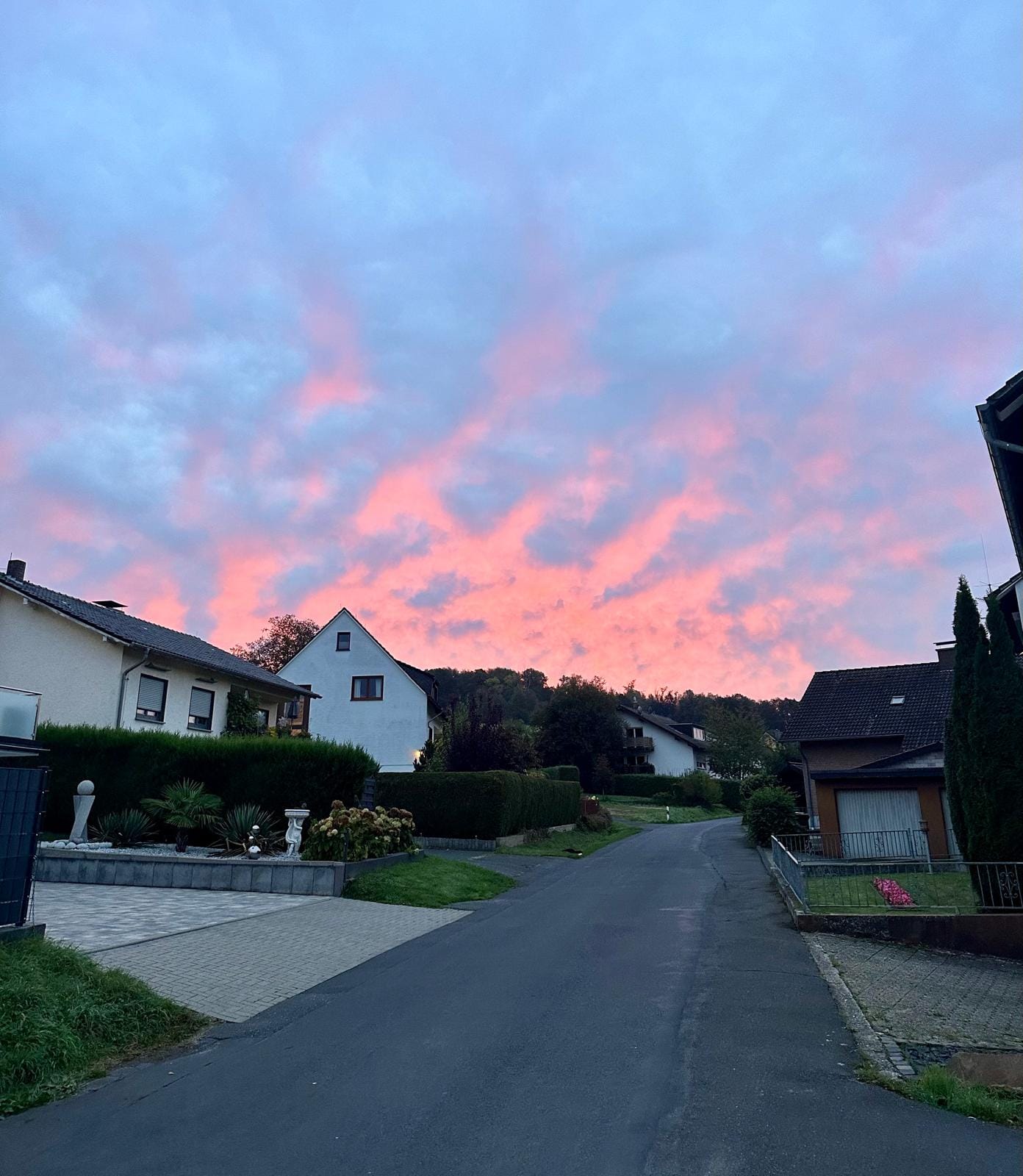
I love the city location. The proximity to Bonn makes it an ideal place: it’s quiet, yet it’s easy to commute to the office or university. I enjoy Königswinter because it combines peaceful environment and advanced city infrastructure. However, this city may not suit those who love dynamic city life, nightlife and big parties. Königswinter is more about providing a balanced, calm and comfortable life.
Selecting a City District
In Germany, the current situation is like this: it’s not you who chooses an apartment, the apartment chooses you. Due to the migration flow, finding housing has become much more difficult than 5-7 years ago. On average, the search process takes from 3 months to a year, especially if we are talking about a specific city area.
When looking for a place to live, I considered several options: Bonn and all the nearby cities. In the end, I managed to find an apartment in Königswinter in 4 months, and I think it was a pretty good decision in terms of location.
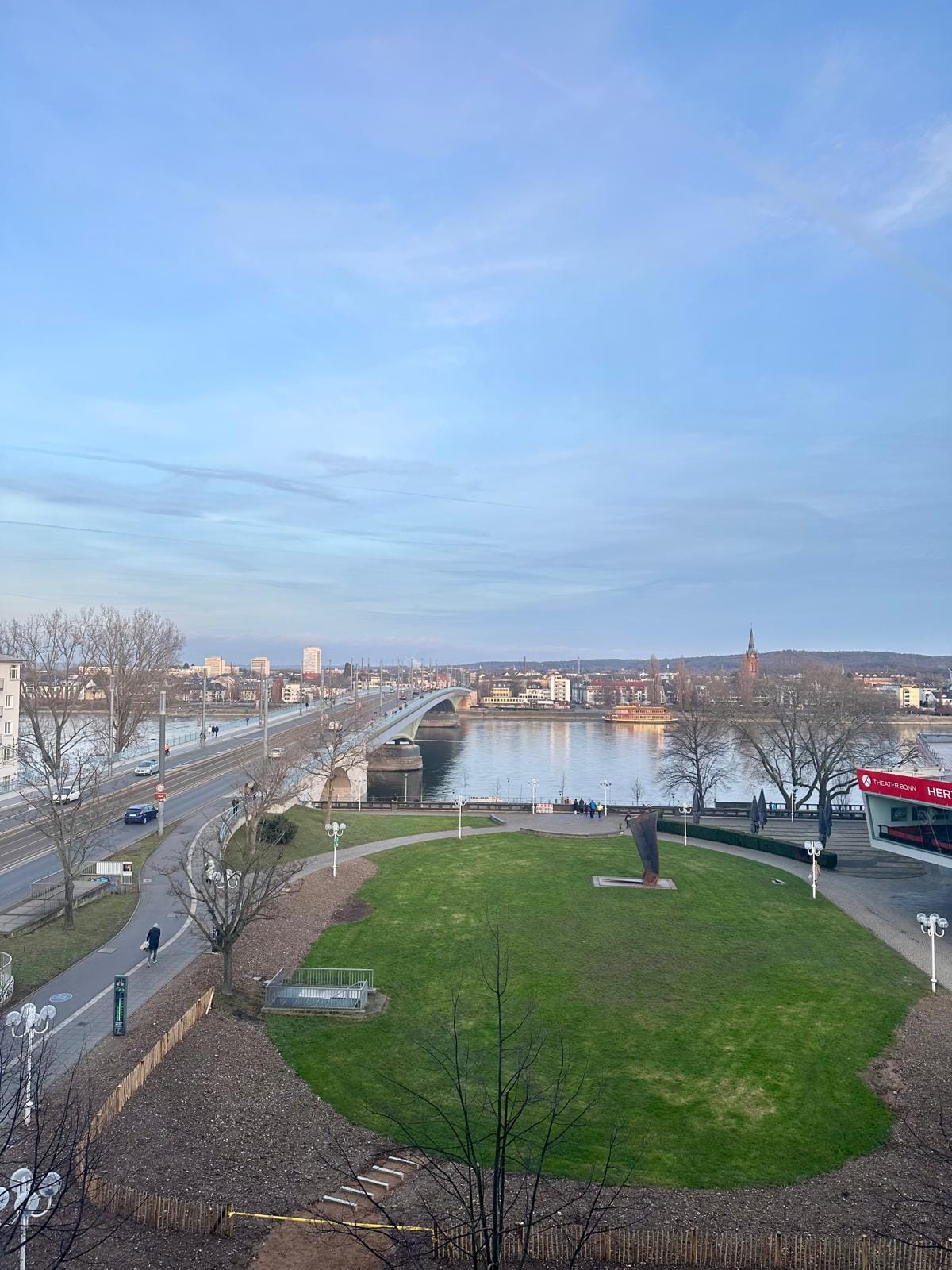
One of my main criteria was to avoid the city center, as it’s always noisy there. However, I didn’t want to live too far from Bonn, as I commute there every day. On average, it takes me about 30 minutes to get to work. I usually drive to the tram station by car and then go 3 stops by tram. If you use only public transport, you can take a bus, but it takes about 50 minutes – quite a long time by German standards.
My building is located far from densely populated areas; it is very calm and quiet, there are many forests and fields around. At the same time, transport accessibility is great: the bus stop is only a two-minute walk away. If you go by car, you can get to the Autobahn in 5-7 minutes, and then it’s only 5-10 minutes left to Bonn – or about 25 minutes to Cologne.
Favorite Places in the City
All the main entertainment options, parks, cafés and restaurants are situated in Bonn. One of my favorite places is the promenade on the Rhine with a stunning view, where you can just walk, sit by the water or enjoy a boat tour. In summer I’m fond of numerous parks where you can have a picnic on the grass and relax.
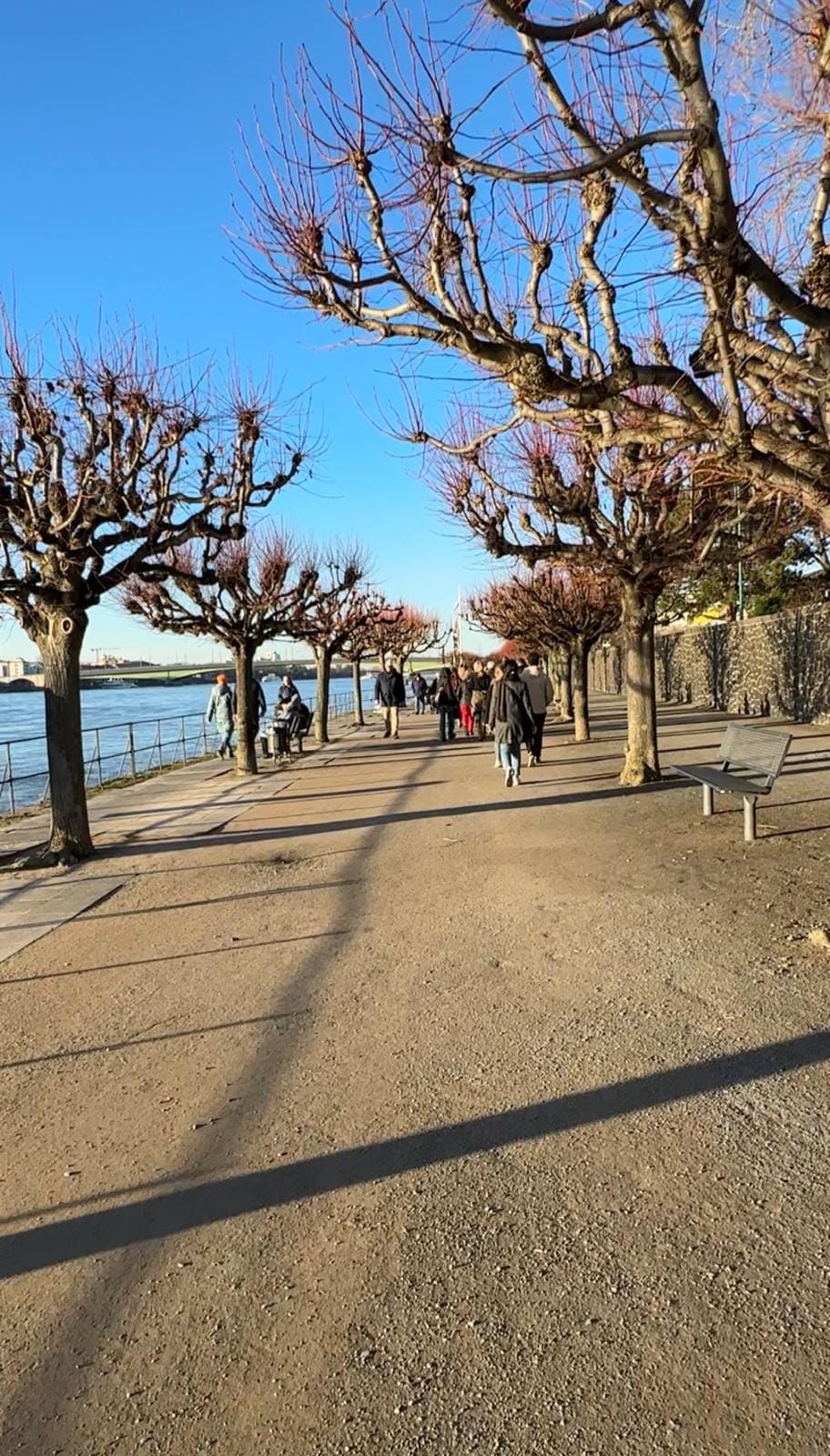
House Hunting in Germany: Rental Market and Main Challenges for Expats
As I have already mentioned, in the current reality, finding an apartment in Germany is an extremely difficult task. This is especially true for expats, since in addition to high competition, there are certain requirements from landlords.
Based on my personal experience, searching for housing requires a huge time investment. It is important not only to find an apartment, but also to choose an option that suits you both in terms of the location and amenities. In Germany, they even joke that finding an apartment is more difficult than finding a job, and that’s actually true. Oftentimes, hundreds of people apply when they see good options online, and you may never hear back from the landlord.
I used a mobile app to search for an apartment, it’s called Immoscout 24. It offers a paid subscription for 3 months for about 100 euros. The subscription gives you the advantage of seeing new ads before others and responding faster, which significantly increases your chances of success. But you don't have to choose a paid version if you don’t want to.
In my case, I didn’t contact real estate agents. Please mind that agency services can be quite expensive and don’t always guarantee a successful outcome. Remember: on average, finding accommodation can take from 3 months to 1 year.
Renting an Apartment: Main Criteria
Landlords are very careful when selecting tenants. In my opinion, there are three crucial factors:
1. Employment contract and proof of income. This is probably the most important criterion. The tenant must provide information about receiving a stable income. It is also key that the rent amount is reasonable in relation to the salary. For example, if the apartment costs 1,500 euros and your salary is 2,000 euros, the chances of getting such an apartment are minimal, since the landlord will doubt your solvency. Additional unofficial sources of income are not taken into account here.
2. Credit history (Schufa). In Germany, there is a credit history system called Schufa, and landlords almost always request it. It’s easy to obtain it. Go to the official website, enter your tax number, pay about 25 euros – and your document is ready. A positive credit history significantly increases your chances.
3. Response speed. To secure an offer, you have to constantly monitor digital platforms, promptly respond to new ads, and be ready to immediately provide all the necessary documents.
There are also certain rental regulations that apply throughout Germany, including North Rhine-Westphalia. For example:
• Maximum amount of security deposit (Kaution). Typically, the landlord asks for up to three months' rent as a deposit.
• Notice of contract termination (Kündigungsfrist). A standard lease agreement specifies a notice period for moving out; it’s usually 3 months.
Overall, the rental process requires patience, attention to detail, and having all the necessary documents. If you comply with all these requirements, the chances of finding a suitable option are much higher. I speak German quite well, and of course, this is a big advantage when looking for housing. But Germany is a multicultural country and many landlords can speak English, so speaking German is not always a must – but will always be a big plus.
Our Apartment in Königswinter
My wife and I have been living in this apartment for six months now. When I started searching, I downloaded the Immoscout 24 app right away. I used the free version during the first month, but it didn’t bring any results: I clicked on the ads of the apartments I liked, but I didn’t receive any responses or invitations to viewings. After switching to a paid subscription, we were invited to view the apartments twice. Imagine: in total, I responded to over 50 apartment ads, but we were invited to view only two offers.
We really liked the first apartment we saw. The second apartment was also nice, and by a lucky chance, the landlords liked us and offered to sign the contract the next day.
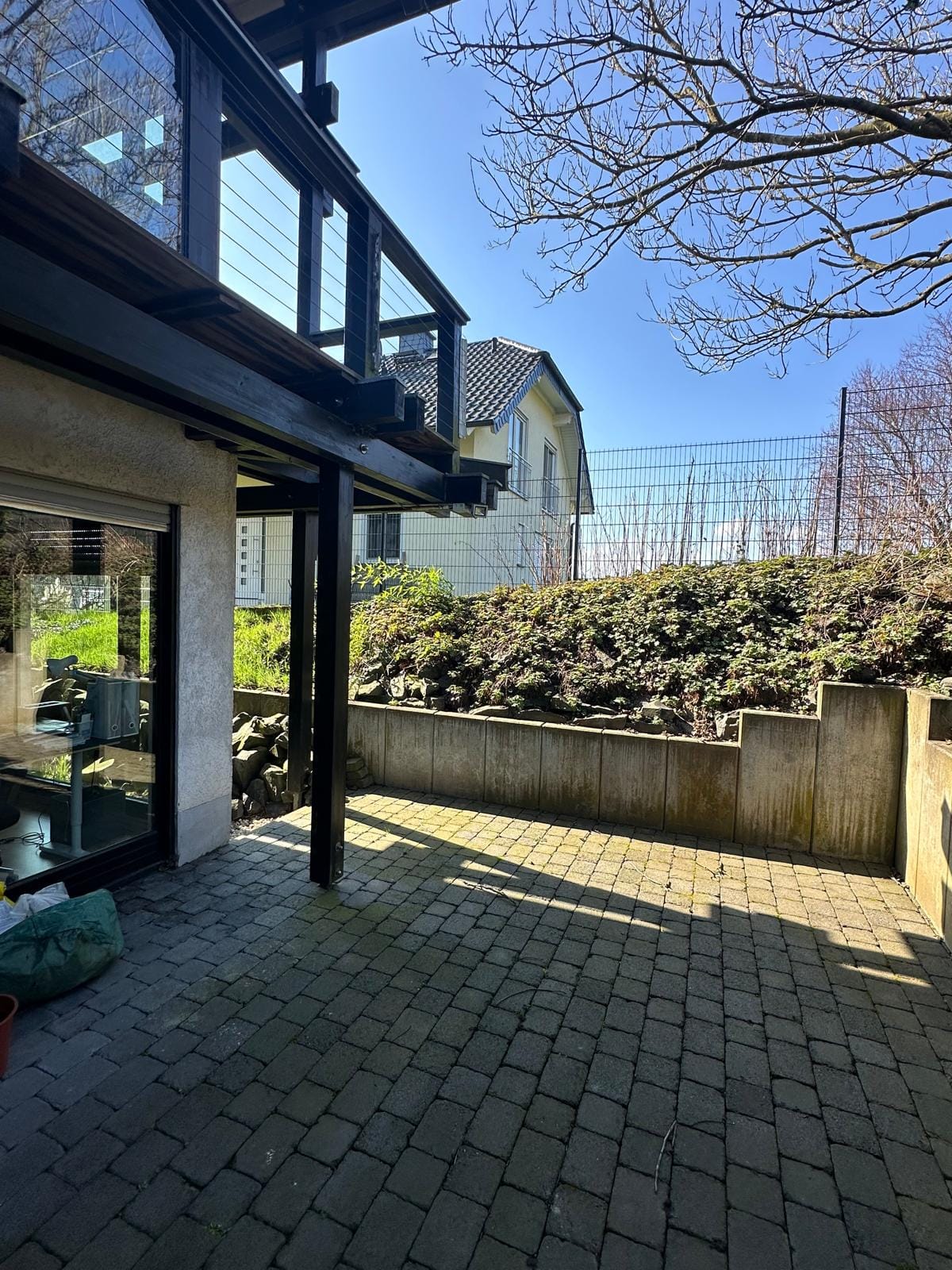
We live in a big house with only two apartments, occupying the whole first floor. We have a big terrace overlooking the street, as well as private parking and a place for a grill. All this creates a cozy atmosphere. In addition, it is very calm and quiet around, because there is a forest nearby, so we live close to nature.
The process of viewing the apartment went like this. We had an appointment, and instead of the owners, we were met by the previous tenants. It was a young couple who showed us around. I had a chat with them to find out some advice on how to make a good impression on the owners. They gave us some tips, which turned out to be quite useful. After viewing the apartment, we met with the owners. We spent half an hour discussing various topics; it was like a job interview, to be honest. Everything went well and we were asked to sign a rental contract.
At the next meeting, the rental contract was ready. We brought all the necessary documents: our passports, credit history evidence, a copy of the employment contract indicating the salary. An open-ended lease was signed. We faced no additional costs associated with a notary or agents. We also paid a deposit of three months' rent, which will be returned to us when we move out of the apartment.
As for the utilities, we pay rent plus additional costs, so-called Nebenkosten. These costs include water and gas bills. Electricity and Internet are paid separately: there are many service providers in Germany, and you can choose any to your liking; the prices and perks slightly vary.
Speaking about the rental price, I think the apartment is worth the money. Of course, I would like it to be cheaper, but that's okay. We didn't try to bargain, because given the current situation, if you like the apartment, you need to take it as quickly as possible! Other interested clients can rent it in the blink of an eye. For example, when we came to view the apartment, there were five more couples after us who also considered this apartment. So, the issue is not the price, but being the first and lucky one to secure the chosen apartment. In theory, you can try to negotiate the price, but it depends on each case.
Local Specifics
I was pleasantly surprised by an amazing attitude from our landlord. She is an older lady who could be my grandmother. She gives us presents for Christmas, asks how we are doing, if everything is ok and how we are settling in. We appreciate this caring approach a lot, and I think it matters a lot when renting a house – and truly makes a difference.
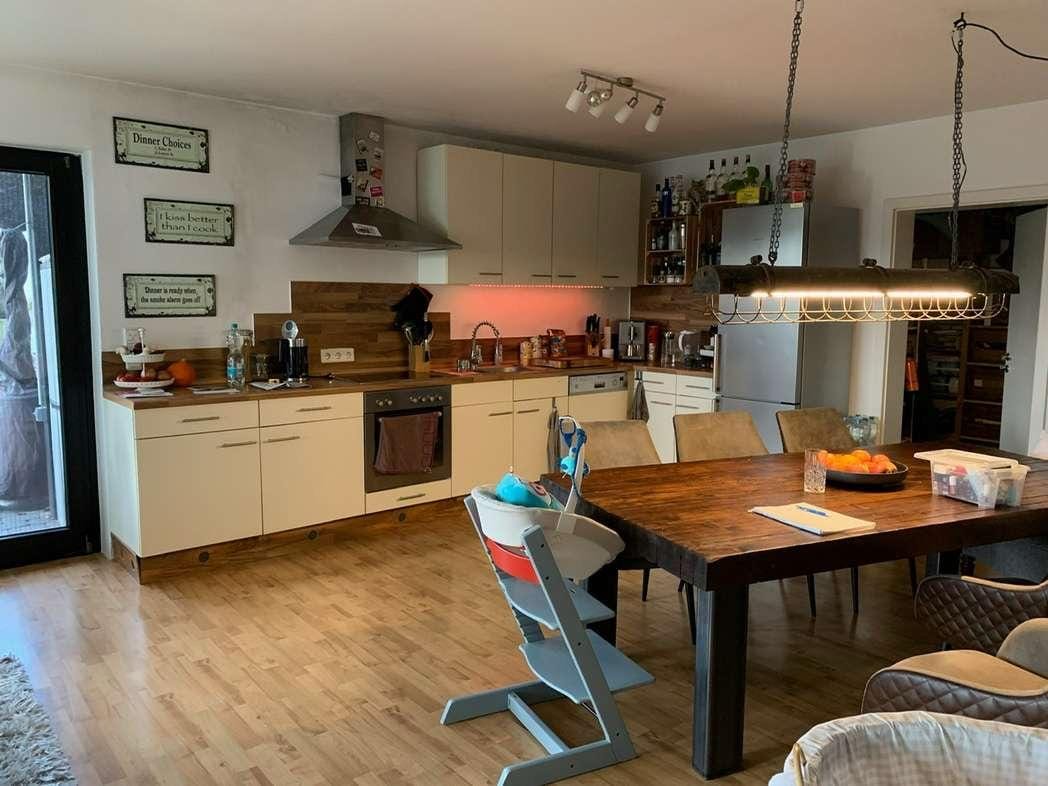
One thing that really surprised me about renting a place is that 90% of the time, the apartments are rented out completely empty. There is no washing machine, no kitchen, no furniture – no sofa, no table, nothing. The tenant has to furnish the apartment completely on their own. However, there are exceptions: sometimes the apartment already has a kitchen installed, and the previous tenant can offer you to buy it at a low price. We were lucky indeed: the kitchen was already there, and we managed to buy it for only 200 euros.
Useful tips: Renting an Accommodation in Germany
I would like to emphasize that you need to allocate sufficient time to search for housing. This process requires a proactive approach and dedication. If you don’t search systematically, the likelihood of finding an apartment is greatly reduced. In addition, Germany is a country of bureaucracy and complex paperwork. Therefore, it’s extremely important to have a full set of documents: a work contract, a stable salary, and a good credit history.
My advice is: be patient and don’t give up! This process can be long sometimes. You may come to a point where you think that you’ll never be able to find a place, despite daily monitoring the websites and responding to ads. Yet there’s always a way! Keep looking, and when sending your request, make sure to write a brief description of yourself, including important details about your job, marital status, and credit history. You can also attach all the main documents so that the landlord can evaluate your profile at once. Such an approach will significantly increase your chances of success. Good luck!




